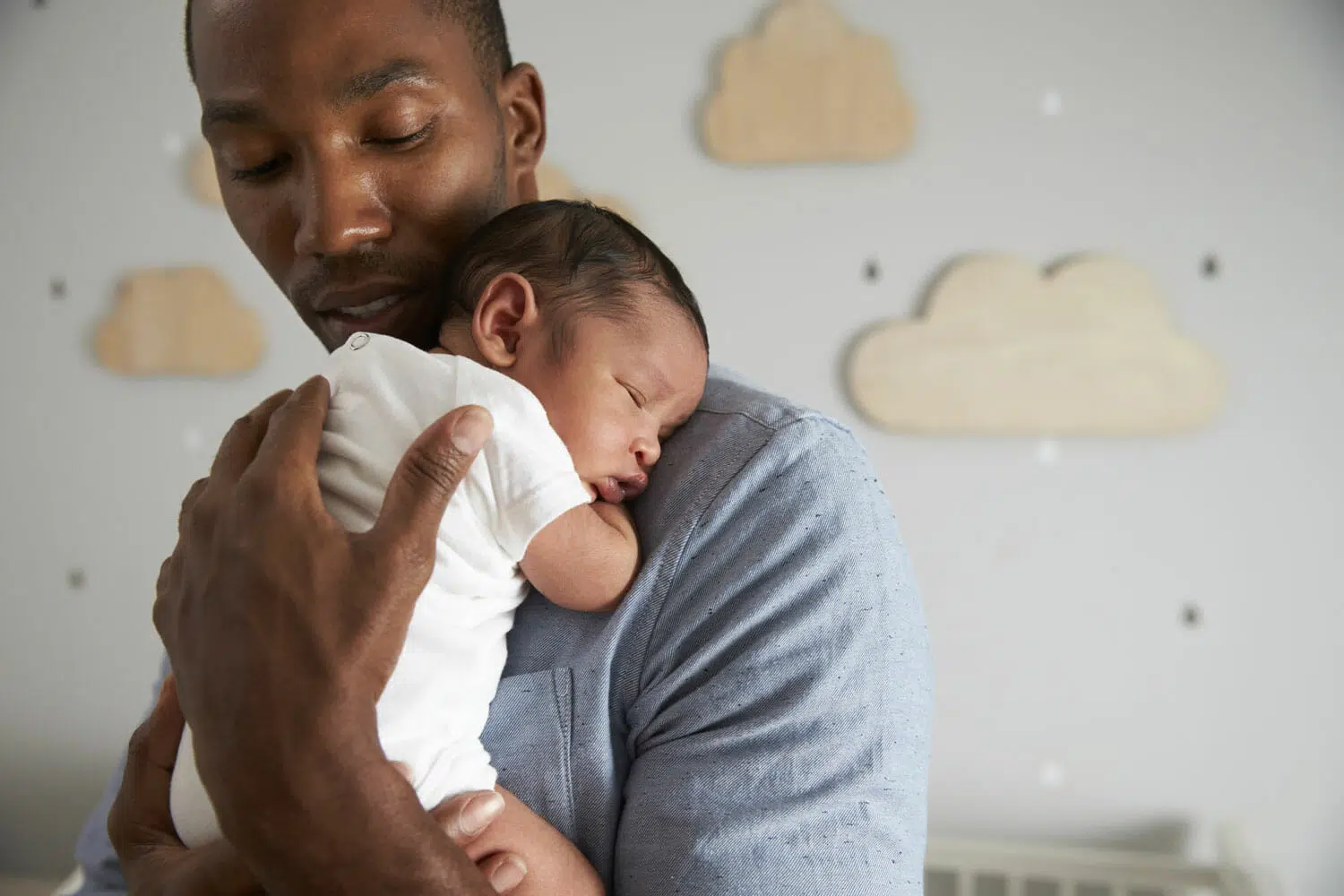John Washington, aged 25, sailed on a ship from England to Virginia in 1656, serving as second officer. Though the ship wrecked in the Potomac River, it was repaired and could have taken John back to England. He did not return. What he did instead, for which we are all immensely grateful, was father Lawrence Washington, who fathered Augustine Washington, who fathered George Washington, who fathered our nation. Virginia has long recognized the role of fathers. While basic biology may help you understand the process, navigating Virginia’s legal system can make you wish you were on a slow boat to England.
Acknowledgement of Paternity: Get It In Writing!
Paternity tests on television almost always hinge on DNA evidence. Wanna show off for your friends? Simply replace “DNA” with “deoxyribonucleic acid” and you will sound like you stepped off the set of CSI. Yet in real life, Virginia’s avenues to determining paternity do not always intersect with alleles and genes. Two other ways to determine paternity, besides DNA testing, are available in the Commonwealth.
One method of determining paternity is simply to produce a written statement that assigns fatherhood to some particular man. The Code of Virginia describes this under §20-49.1, titled “How parent and child relationship established.” Though test-tube babies have been around since 1978, Virginia at least still accepts that a woman is the mother of a child to whom she has given birth. The father, though present at one point in the “make a baby” process, need not be present at the culminating effort and so must attest to his paternity via
“A voluntary written statement of the father and mother made under oath acknowledging paternity and confirming that prior to signing the acknowledgment, the parties were provided with a written and oral description of the rights and responsibilities of acknowledging paternity and the consequences arising from a signed acknowledgment, including the right to rescind.”
A Virginia man can claim to be the father of any child born of a Virginia woman, even if, biologically, the child is not his. This is handy for those men who wish to take on the hero’s role of helping out a single mother-to-be whose scoundrel of a sperm donor has disappeared. Both the mother and alleged father put in writing that they take responsibility for the little life in their hands. This Acknowledgement of Paternity (AOP) is often done right at the hospital where the child’s mother has the child, and is administered under oath by the birth registrar. Dad simply needs a photo ID to prove he is who he says he is.
It is an awesome responsibility, so Virginia does provide a way to undo the declaration. The man (or woman) has 60 days to rescind the acknowledgement, which means after roughly two months of fatherhood, in the eyes of Virginia courts, you are a Daddy. We’d be remiss not to note here that this is not a decision to take lightly!
Paternity Through Adoption
Under the same section of Virginia Code, you can also establish paternity for a Virginia child by showing that you legally adopted the child. A person of any age can be adopted, so even if you come into a ready-made family by marrying a single mother of two teenage boys — we can call them Payne and Diaz — you can become the teens’ Dad by adopting Payne and Diaz through a non-agency adoption as a step-parent. You can learn more about this process through Virginia’s Department of Social Services, DSS.
Do I Have to Sign an AOP (Acknowledgement of Paternity)?
If you deny being a child’s father, and you refuse to sign an AOP, the child’s mother could ask the DSS’s Division of Child Support Enforcement (DCSE) to take you to court. Here, you may be compelled to present (through your attorney) evidence that you are not the child’s father.
The court, by turns, could order you to take a paternity test (blood test or DNA test). If the results come back with at least a 98 percent probability that you are the child’s father, congratulations, you’re a Daddy.
Your attorney can use legal skills to counter any arguments the mother makes, but the judge is the sole determiner of paternity, based on DNA test results.
This is not the sort of case you want to take to a typical Virginia family lawyer. If you are seeking to avoid a false accusation of paternity, you need a Virginia lawyer completely in command of Virginia family law, from the Code to relevant case law.
Disestablishment of paternity is as important for everyone involved — mother, child and putative father — as establishment of paternity. After all, the child should have the love and financial support of a father, and if you can prove to Virginia’s court system that you are not the father, someone else must step up and take responsibility.
And who knows? Perhaps the child’s real father is a descendant of John Washington. Lucky kid.
Call On The Paternity Lawyers at The Firm For Men
The Firm For Men, at 757-383-9184, can help you with your Virginia paternity case. As family law attorneys, we are thoroughly familiar with the Virginia Code, case law, and pertinent federal law. We are zealous advocates for men’s rights in Virginia. Contact us online, or telephone our offices, to speak with a paternity lawyer today.


